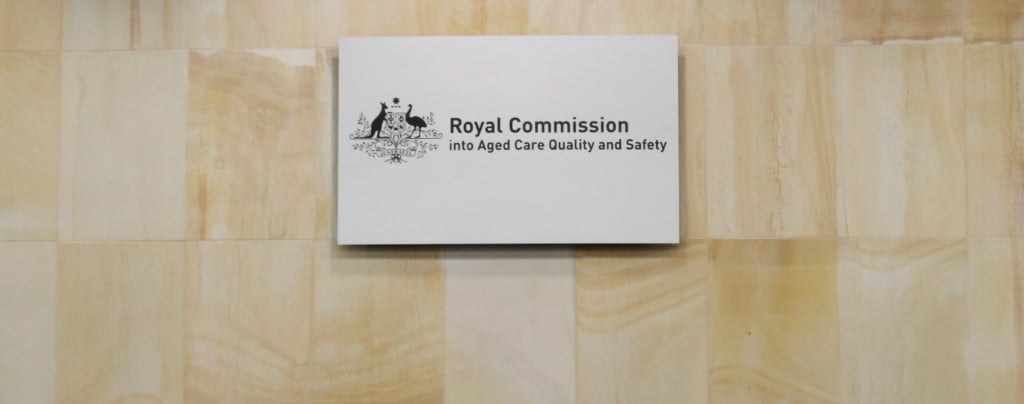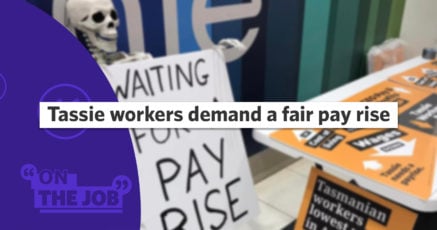
An immediate and comprehensive overhaul of the system is literally a matter of life and death for tens of thousands of Australians living in aged care.
That is the message Australian nurses will be delivering to politicians in Canberra this week, following the recent release of the Aged Care Royal Commission’s findings.
A delegation of workers from the Australian Nursing & Midwifery Federation (ANMF) will be at Parliament House early this week to put the blow torch to politicians from all parties to ensure the 148 recommendations from the Royal Commission are implemented.
Assistant Federal Secretary of the ANMF, Lori-Ann Sharp, spoke with On the Job before heading to Canberra, and was determined to ensure that the latest report on the aged care sector doesn’t join its predecessors, gathering dust on a shelf.
“We are taking a delegation of nurses, registered nurses, enrolled nurses and carers from all around the country. We’ve got a delegation of around 15 from almost every state,” Ms Sharp said.
“We’ll be seeking commitments from both Liberal and Labor politicians around making a commitment to mandate staffing ratios in all aged care settings and that includes a minimum staffing level and skill mix.
“It’s been a long time coming [the Royal Commission’s report], the process has taken two years, meanwhile, we continue to experience understaffing.”

Current staffing ratios across the aged care sector vary wildly, and the result has been a disaster for residents and their families. Ms Sharp insists that there is no excuse for providers to continue to fail their residents in delivering the care they deserve.
“We did some research in 2016 that told us, at a minimum, we need a 4.3 hours per day of care [per resident] and that would be delivered by a mix of 30% registered nurses, 20% enrolled nurses and 50% carers,” Ms Sharp told On the Job.
“It’s up to 75% of the care workforce doing that work at the moment, because we’ve seen a real dramatic loss over the last decade of registered nurses in aged care and that’s really one of the problems that the Royal Commission identified, a lot of unmet medical needs.
“The report states that over 50% of residents are being malnourished and that 60% of people living in nursing homes have had unacceptable staffing levels and that all comes back to that people point around having adequate staffing.”
Award winning journalist with The Saturday Paper, Rick Morton, has been writing about the crisis in the aged care sector for almost decade. He believes the findings the Royal Commission underline how vital workers in the sector are to any reform of the beleaguered system.
“I think finally, there is the ultimate judgment call and the fact that they [aged care workers] need to be there in greater numbers. They need to be paid properly and skilled properly, which has not been the case since 1997, when a lot of the requirements for these things were removed from the care legislation,” he said.
“People have been jumping up and down about these for decades now and finally we have it written down in the final record from the Royal Commission, saying that the principal cause of substandard care in the aged care sector comes from lack of staffing.”
Mr Morton also links the industry’s addiction to insecure work with the erosion of care for residents, which has had disastrous consequences.
“It’s actually quite massive because you do loose that continuity of care.
It’s not the workers fault, but people who are rushing from job to job, they’re not being paid properly for the time that it takes them (particularly home care workers) to get between different residences.
“Also, they’re moving between facilities with different record keeping, processes, a staff that already don’t have time to brief new arrivals properly on the standard of care that is required or particular issues that might be known to permanent staff.”
Regulating the latest disrupters in the sector – tech start-ups like Mabel that facilitate jobs for casual and insecure workers – is urgently required, according to Rick Morton.
“Mabel are like Uber, they don’t act as an employer, and so technically it was the provider that would have been responsible for the standards of work.
“The Royal Commission says that this should no longer apply, that apps and tech startups like Mabel and Hire Up must be regulated like the employer and they must be responsible for the workingconditions, but also the skills of people.”
For Lori-Ann Sharp and Australia’s front line health care workers, greater accountability for providers is desperately needed if there is going to be real change in the sector.
“The regulator has failed. The Royal Commission talked in great length about providers, who are going to set up aged care businesses in the future, having much tighter controls about demonstrating that they’re able to conduct such a business,” said Ms Sharp.
“Since John Howard introduced the Aged Care Act in 1997, the amount of people that are running nursing homes have a real estate background or a finance background because it’s seen to be a profitable business.
“We definitely need to some tighter controls. No more money can be given until we know where it’s going, it needs to be tied to care.
“Otherwise, it’s just another opportunity for providers to milk the system and gain more profits.”













SHARE:
No more excuses on aged care reform – Australia’s nurses